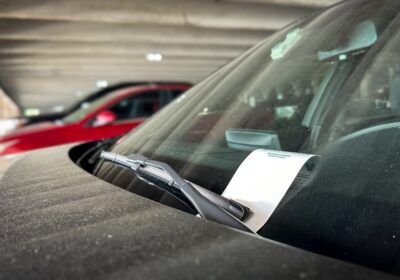USF prepares for possible Poly financial audit
After recent reports on USF Polytechnic’s spending – including $140,000 on a promotional video for a new campus and $500,000 on a documentary about its construction – two state senators have called for a financial audit of the Lakeland campus.
Sen. Paula Dockery, R-Lakeland, and Sen. Mike Fasano, R-New Port Richey, requested that USF be audited on how USF Polytechnic is spending its state funds.
Fasano said in an interview with The Oracle that Dockery received an anonymous letter about USF Poly Regional Chancellor Marshall Goodman’s expenditures.
“(It’s) from either a student or students with some questions, and I think they are very good questions that need to be answered,” he said. “You’re always cautious because it does come anonymously, but it does come with incredible questions. In fact, one of their concerns was that family members were being hired. That was reported as well in the media … so the credibility of the questions that have risen, I think, is to the point where they need to be answered.”
According to the St. Petersburg Times, two of Goodman’s sons work at USF Polytechnic, though USF Poly spokeswoman Samantha Lane said the regional campus followed hiring procedures.
The anonymous letter not only outlined the relatives, but also that faculty members are “whispering” to students that they cannot afford academic programs because Goodman is spending money on “personal follies.”
“The Student Government Association (SGA) senators have told a lot of we students that Dr. Goodman has siphoned off their SGA money for some of his ‘personal follies,’ and when the students try to speak out about it that the Dean of Students, Dr. Jan Lloyd, tries to shut them down,” the letter stated.
SGA senator Sage Stevens said he has not seen any senators make such accusations publicly.
“My opinion on the matter is that if you can’t put your name on it, the validity is in question,” he said. “There is open dialogue between student senators and faculty.”
University spokesman Michael Hoad said in an email to The Oracle that USF is currently evaluating the “most effective response” for the audit.
“Please note that all regional campuses are fiscally autonomous because they get their operating funds directly in the state budget,” he said. “The regional chancellor prioritizes his or her budget and executes it. The regional boards approve that budget.”
Grant Gavitt, Jr. of Tel-Air, the international TV company that signed with Polytechnic to do the documentary, said in an interview with The Oracle that discussions on the series began about two years ago.
“We are TV producers and we are very good at what we do and this is a wonderful, vital project with a rock star of an architect which has national and international notoriety and would make a wonderful … presentation that would brand (Polytechnic) as cutting-edge at what it does,” he said.
The documentary will record the development of the new campus, designed by Spanish architect Santiago Calatrava, Gavitt said.
“It was a three-year project,” he said. “Two to three years on the design, you know, capturing it from the inception through the design through the completion. It’s branding USF (Polytechnic) as being involved with the leading architect in the world. But, obviously, when you associate yourself with greatness, you are trying to achieve greatness and that is the story that we are telling.”
Discussions on USF Polytechnic splitting from the USF system became public in July when Polk County community leaders sent a letter to Board of Governor (BOG) chairwoman Ava Parker about the economic benefits that could stem from a 12th state university in the area.
BOG members discussed the initiative during their September meeting after Goodman presented why a split would benefit Polytechnic, and another presentation is scheduled for their Nov. 9 –10 meeting.
Fasano said state legislators have not spoken much about the initiative.
“I’m sure it would come about depending on what (BOG) Chancellor (Frank) Brogan and the Board does when they come together this coming November,” he said.
When it comes to whether the Lakeland campus does separate from USF, Fasano said money is a concern.
“To me and to some of my colleagues … this idea is for all the wrong reasons,” he said. “The wrong reasons are, first and foremost, that it’s being pushed by a state senator, (J.D. Alexander) because he wants to leave his mark, the cost (to) the students and the cost (to) the taxpayers- tens of millions and possibly hundreds of millions years and years down the road. That’s the wrong reason why you’re building a university. Second, if it isn’t broken, why fix it?”
Fasano said the creation of a new university would come at the expense of taxpayers.
“We’re going to be short of PECO dollars … used to build facilities at universities or community colleges,” he said. “If it is a successful move to build a brand new university in Polk County, it’s going to take away from other universities big time.”
SUS Board member and student representative Michael Long, who is also the student body president at New College, said he called Goodman in regards to the $140,000 spent on the YouTube promotional video.
“He said those funds came from private money, so he raised that money himself … not the taxpayers’ pockets, so that does make me feel better,” Long said. “I know the background of the YouTube video, but as far as the promotional video … I did not talk to Dr. Goodman about that. But $500,000 for a promotional documentary is probably not the greatest idea, both politically and in the sense of just spending of funds that the state awards.”
Fasano said he understands that USF President Judy Genshaft is in an “awkward” position.
“The state senator that is pushing this, Senator Alexander, is the chairman of the appropriations committee that holds the purse strings of the universities in this state,” he said. “(But) we’re hoping to find out how, exactly, dollars are being spent. To me that’s just a common sense question and there should be a very common sense, easy answer with disclosure. Everyone, every taxpayer in the state, every student at USF, every faculty member, every state senator and state legislator has the right to know how they are spending state dollars at USF.”






